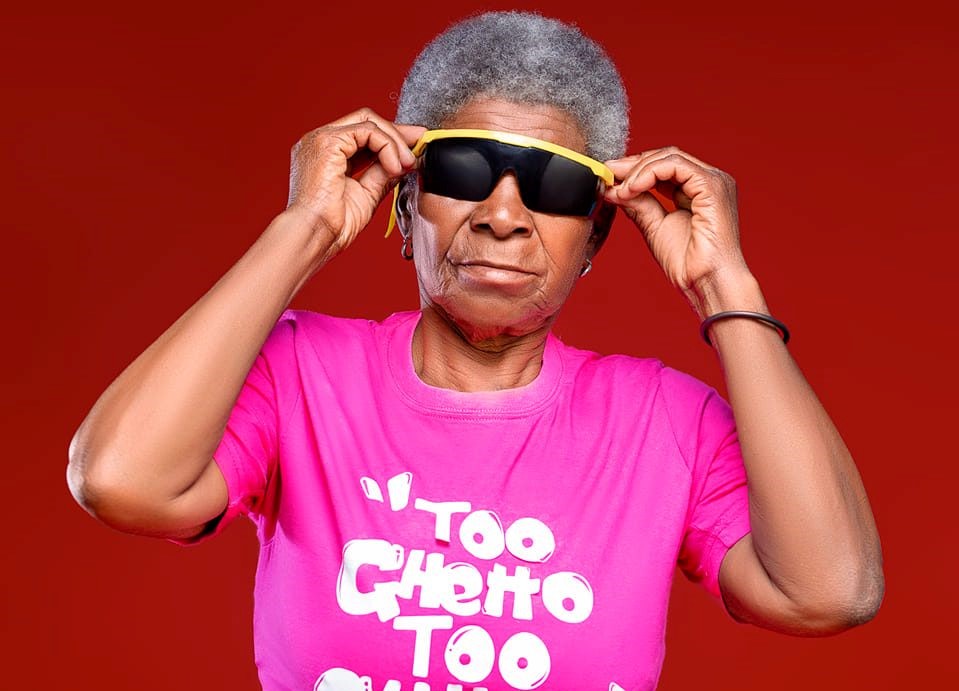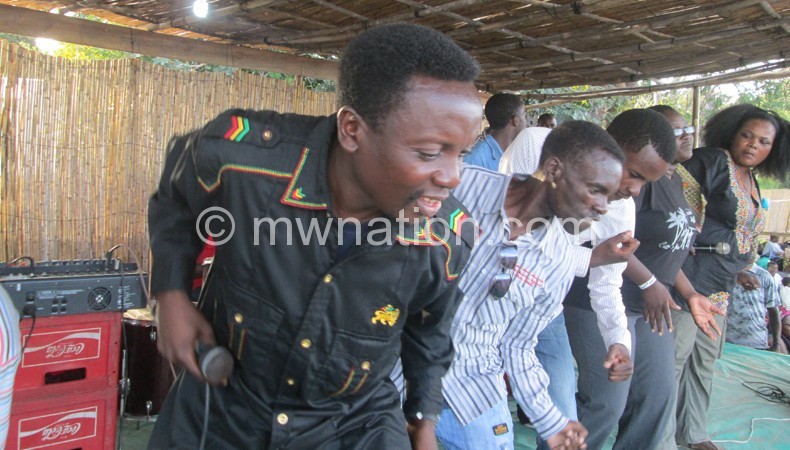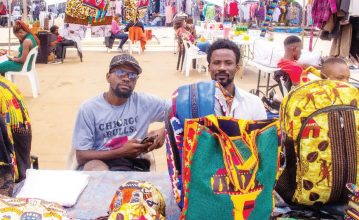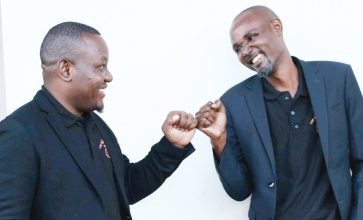Du Chisiza Jnr (26 March 1963 – 24 February 1999)
 “Barefoot in the heart” rang the voice on the radio heralding the staging of the play somewhere in Malawi. Gone are those days when the voice of Du Chisiza Junior would be heard on the radio. No Weekend would pass without Wakhumbata Ensemble Theatre staging a play to “forge a theatrical future …..as the journey continues”.
“Barefoot in the heart” rang the voice on the radio heralding the staging of the play somewhere in Malawi. Gone are those days when the voice of Du Chisiza Junior would be heard on the radio. No Weekend would pass without Wakhumbata Ensemble Theatre staging a play to “forge a theatrical future …..as the journey continues”.
All that is what marked the life of playwright, director and actor Dunduzu Chisiza Jnr. Du ate, dreamt and breathed drama till the end. His stage plays were well, written and supported by great acting.
Nowadays, that group is almost non-existent.What remain are just memories of Du’s Wakhumbata. The following information sourced from the independent.co.uk provides the life of this great artist, one worth noting and mentioning.
Du was a playwright, director and actor who, in 1987, founded the first professional theatre company in Malawi, the Wakhumbata Ensemble Theatre. He wrote over 20 plays and was involved in the writing and directing of some 25 others, often playing the lead role himself.
Growing up in post-independence Malawi, Chisiza put his efforts as an artist behind the growing campaign for human rights and democracy in Dr Hastings Banda’s one-party state. “As long as I find that there is something wrong, I will always express it through my work,” he said. “I think the artist is like a torch-bearer for people who have been sidelined. We are there to fight for people who might not have the opportunity to fight for themselves. If that opportunity can be found through theatre, then so be it.”
He came from a prominent political family in Malawi. He was born in 1963, the third son of the veteran nationalist Dunduzu Chisiza, who had been tipped to become the country’s first Finance Minister on independence from Britain in 1964, but who had died in a car crash in September 1962, six months before the birth of Dunduzu junior. His uncle, Yatuta Chisiza, had also been involved in politics, serving as bodyguard to Banda during the struggle for independence in the early 1960s. Following independence, Yatuta turned against the president and was killed during an attempted take-over in 1967.
Chisiza first became interested in the theatre while a secondary-school student at the HHI Secondary School in Blantyre, Malawi. In 1982 he wrote and directed The Deceased’s Attack, which won first prize at the National Schools Drama Festival. After leaving school in 1983, he formed the Wakhumbata Workshop Theatre. Wakhumbata has many meanings in two of the main Malawian languages – Chichewa and Tumbuka – among them “one who hugs”, “one who hatches eggs” and “those who grieve”.
He left for the United States in 1983 for further studies and in 1987 he was awarded an MA in fine and performing arts at the Philadelphia University of the Performing Arts. He was also keen on martial arts and obtained a black belt and became an instructor at the Philadelphia Arts Centre. In 1987 he returned to Malawi to form his own professional theatre company.
His plays ranged over a variety of controversial issues. Me Nobody Knows and Tears of Blood (late Eighties), the first he wrote on his return, were banned by the government, which had been operating strict political and moral censorship since the late 1960s. “Eventually I came up with Fragments, which was an abstract piece which they failed to understand,” he later remarked. In 1991 Educating Mwalimu, concerning love, marriage and “the new woman”, was shortlisted in a BBC playwriting contest. Race relations and Pan-Africanism were dealt with in a historical context in Barefoot in the Heart (1992).
It was for his political plays that he was best known. The Deceased’s Attack was a rewriting of the Hamlet story with a Hamlet-type figure clearly modelled on Chisiza himself. The protagonist contemplates revenge for the death of his own father, an allusion to the theory that Dunduzu Chisiza Senior was reputedly killed by agents of Banda. Papa’s Empire (1990) used the corruption of a private enterprise as a thinly disguised fable for the malpractices of Banda’s Malawi Congress Party government.
In the run-up to multiparty elections in 1994, Chisiza was courted by each of the three major political parties. It was a great surprise to many when in 1993 he threw in his lot with the MCP. He was given a ministerial post – Minister for Sports, Youth and Culture – in one of Banda’s last cabinets. During this year, he produced Democracy Boulevard (1993), which, controversially, satirised some of the abuses associated with multiparty democracy, particularly in relation to the unmuzzled media.
With the defeat of the MCP, Du Junior, as he was known, announced his withdrawal from active politics and wrote De Summer Blow, exploring political and social issues in the post-Banda era. In 1998 he joined the ruling United Democratic Front and had agreed to stand as a parliamentary candidate for Karonga South before his death.
On Du’s death, historian D.D. Phiri wrote in The Nation, “Dunduzu Chisiza Junior inherited not just a name but his father’s talents, capacity for work and ability to mix with the humble and great alike. Those of us who had known his father saw in Du Junior a true chip off the old block. We welcomed with appreciation his rising fame in playwriting and acting.” n





